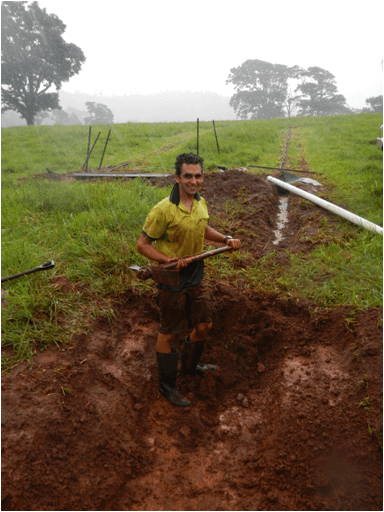Happy World Soils Day
Today we celebrate World Soils Day and look forward to the International Year of Soils in 2015. Since last week’s blog you have been thinking about how soils are the foundation of everyday life. Now is the perfect time to consider your career and the opportunities in soil science.
Today I spoke with Dr Robert Edis about what is happening in soil science and where it can take you. The short answer is a lot and anywhere in the world.
Soil science degrees can lead to work in a wide array of industries including agriculture, mining, natural resource management, waste management, to name but a few. Top level soil experts are in high demand and there are many opportunities for graduates in large firms, agribusinesses, federal and state governments and of course science research institutions.
At the recent Australian National Soil Science Conference Robert was most excited by the research opportunities that still exist in this dynamic field – especially in areas like understanding the “beautifully complex” nitrogen cycle (a quick refresh of my soil chemistry studies and I appreciate why it’s not understood…).
Robert is the Research Program Manager for Soil Management and Crop Nutrition at the Australian Centre for International Agricultural Research. His own career path began with a brief introduction to engineering that was cut short to instead pursue a Bachelor of Science (Agriculture) at the University of Sydney, specialising in soils (because it was less crowded and animal science made him squeamish). Robert has worked as a consultant, completed a Masters and PhD and has recently started at ACIAR applying his skills to research for international development.
Many of ACIAR’s projects are related to soils and in Robert’s research program soils are obviously the particular focus. From working in Kiribas on coastal soils that are almost completely infertile, to understanding the roll of soils in climate change adaptations, to rice paddies in Vietnam that double as shrimp farms in the dry season when salinity levels increase, the issues are wide ranging and could make for a very interesting career in research for international development.
So why not consider these opportunities to help us understand the lively mass beneath our feet, but be warned as you don’t know what you might. See Jack Koci’s Blog.

Jack Koci getting down and dirty in the soil.


